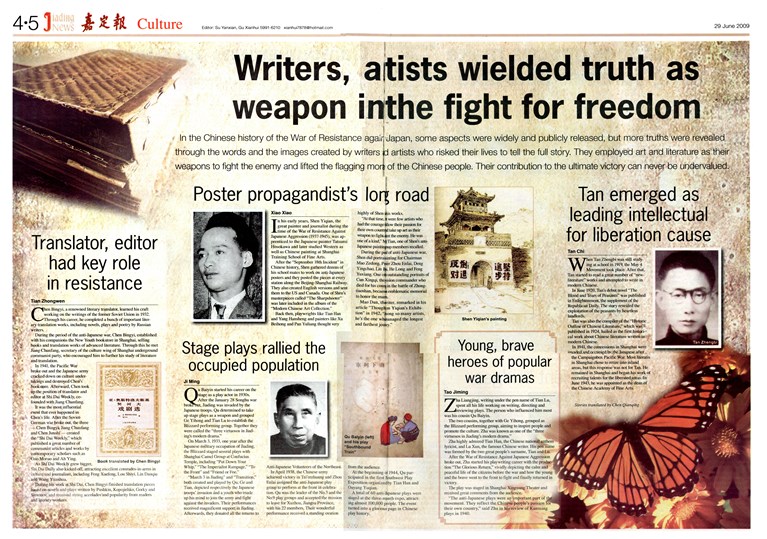

Writers,a〓 tists wielded truth as weapon in the freedom
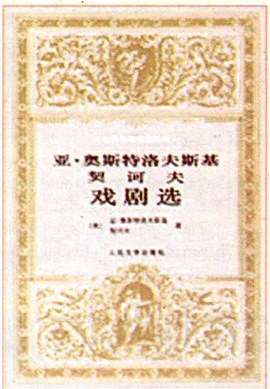
Book translated by Chen Bingyi
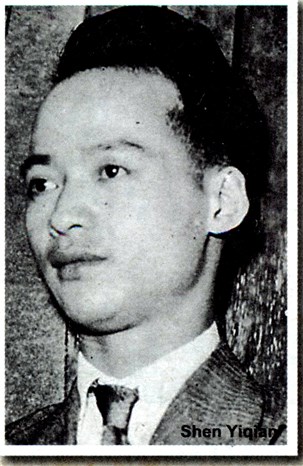
shen Yiqran
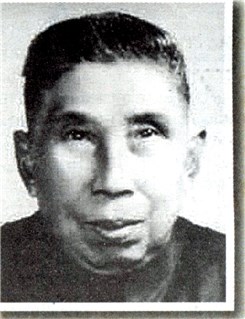
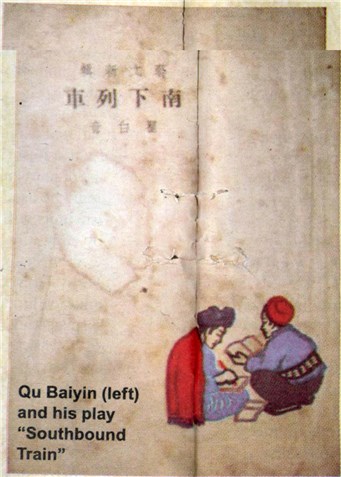
Qu Baiyin(left)and his play“Southbound Train”
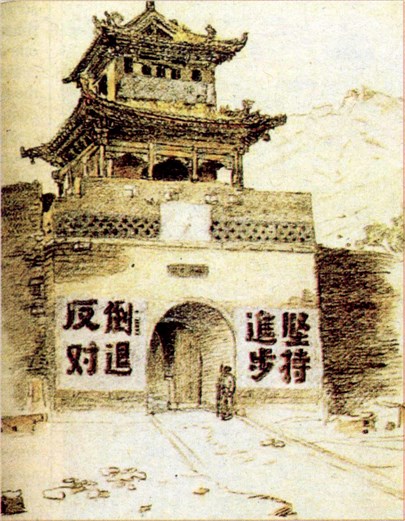
Shen Yiqian’s painting
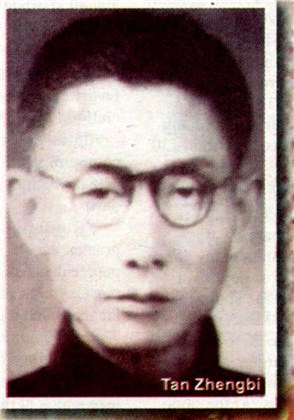
Tan Zhengbi
In the Chinese history of the War of Resistance agair Japan some aspects were widely and publicly released,but more truths were revealed through the words and the images created by Writers d artists who riSked their lives to tell the full story.They employed art and literature as their weapons to fight the enemy and lifted the flagging more of the chinese people.Their contribution to the ultimate victory can never be undervalued.
Translator,editor had key role in resisance
Tian Zhongwen
Chen Bingyi,a renowned literary translator,learned his craft working on the writings of the former Soviet Union in 1932. Through his career, he completed a bunch of important liter- ary translation works,including novels,plays and poetry by Russian writers.
During the period of the anti-Japanese war,Chen Bingyi,established with his companions the New Youth bookstore in Shanghai,selling books and translation works of advanced literature.Through this he met Jiang Chunfang,secretary of the culture wing of Shanghai underground communist party,who encouraged him to further his study of literature and translation.
In 1941,the Pacific War broke out and the Japanese army cracked down on culture under- takings and destroyed Chen's bookstore.Afterward,Chen took up the position of translator and editor at Shi Dai Weekly,co-founded with Jiang Chunfang.
It was the most influential event that ever happened in Chen's life.After the Soviet-German war broke out,the three—Chen Bingyi,Jiang Chunfang and Chen Junshi—created the“Shi Dai Weekly,”which published a great number of communist articles and works by contemporary scholars such as Guo Moruo and Ah Ying
AS Shi Dai Weekly grew bigger, Shi Dai Daily also kicked off,attracting excellent comrades-in-arms in cultureand journalism,including Feng Xuefeng,Lou Shiyi,Lin Danqiu andWang Yuanhua.
During his work at Shi Dai,Chen Bingyi finished translation pieces based on novels and plays written by Pushkin,Kopojiehko,Gorky and Simonov,and received strong accolades and popularity from readers and literary workers.
Poster propagandist’s long road
Xiao Xiao
In his early years,Shen Yiqian,the great painter and journalist during the time of the War of Resistance AgainstJapanese Aggression(1937—1945),was ap- prenticed to the Japanese painter Tatsumi Hosokawa and later studied Western as well as Chinese painting at Shanghai Training School of Fine Arts.
After the“September 18th Incident”in Chinese history,Shen gathered dozens of his school mateS to work on anti-Japanese posters and they posted the pieces at every station along the Beijing-Shanghai Railway. They also created English versions and sent them to the US and Canada.One of Shen's masterpieces called “The Sharpshooter” was later included in the album of the“Modern Chinese Art Collection.”
Back then,playwrights like Tian Han and Yang Hansheng and painters like Xu Beihong and Pan Yuliang thought very highly of Shen ahis works.
“At that time,te werefew artists who had the courage tollow their passion for their own countrnd take up art as their weapon to fight ainst the enemy.He was one of a kind”,Mg Tian,one of Shen's anti-Japanese paintingoup members recalled.
During the pedof anti-Japanese war,Shen did portraiainting for Chairman Mao Zedong,Pnier Zhou Enlai,Deng Yingchao,Lin Bu,He Long and Feng Yuxiang.One ofs outstanding portraits of Cun Xingqi,the vision commander who died for his counyin the battle of Zhong-tiaoshan,becamon emblematic memorial to honor the ma〓rs.
Mao Dun,thevriter,remarked in his article“Thoughon Yiqian’s Exhibi-tion”in 1942,“A〓ong so many artists,he's the one wh〓managed the longest and farthest jou〓ey.”
Stage plays rallied the occupied population
Ji Ming
Qu Baiyin started his career on the stage as a play actor in 1930s. After the January 28 Songhu war brokeout,Jiading was invaded by the Japanese troops.Qu determined to take up stage plays as a weapon and grouped Ge Yihong and Tian Lu to establish the Blizzard performing group.Together they were called the“three virtuosos in Jiad- ing’s modern drama.”
On March 3,1933,one year after the Japanese military occupation of Jiading, the Blizzard staged several plays with Shanghai Camel Group at Confucius Temple,including“Put Down Your Whip,”“The Imperialist Rampage,”“To the Front”and“Friend or Foe.”
“March 3 in Jiading"and“Transition,” both created and played by Qu,Ge and Tian,depicted respectively the Japanese troops’invasion and a youth who made up his mind to join the army and fight against the invaders.Their performances received magnificent support in Jiading. Afterwards,they donated all the returns to Anti-Japanese Volunteers of the Northeast.
In April 1938,the Chinese army achieved victory in Tai'erzhuang and Zhou Enlai assigned the anti-Japanese play group to perform at the front in celebra tion Qu was the leader ofthe No.3 and the No.9 play groups and accepted the mission to leave for Xuzhou,Jiangsu Province, with his 22 members.Their wonderful performance received a standing ovation from the audience.
At the beginning of 1944,Qu par-ticipated in the first Southwest Play Exposition organized by Tian Han and Ouyang Yuqian.
A total of 60 anti-Japanese plays were staged at the three-month expo,attract-ing almost 100,000 people.The event turned into a glorious page in Chinese play history.
Young,brave heroes of popular Ward ramas
Tao Jiming
Zha Liangjing,writing under the pen name of Tian Lu,spent all his life working on writing,directing and reviewing plays.The person who influenced him most was his cousin Qu Baiyin.
The two cousins,together with Ge Yihong,grouped as the Blizzard performing group,aiming to inspire people and promote the culture.Zha was known as one of the“three virtuosos in Jiading’s modern drama.”
Zha highly admired Tian Han,the Chinese national anthem lyricist,and Lu Xun,the famous Chinese writer.His pen name was formed by the two great people’s surname,Tian and Lu.
After the War of Resistance Against Japanese Aggression broke out,Zha started his playwriting career with the produc-tion“The Glorious Return,”vividly depicting the calm and peaceful life of the citizens before the war and how the young and the brave went to the front to fight and finally returned in victory.
The play was staged in Shanghai Xinguang Theater and received great comments from the audience.
“The anti-Japanese plays were an important part of movement.They reflect the Chinese people’s passion their own country,”said Zha in his review of Kunming plays in 1940.
Tan emerged as leading intellectual for liberation cause
Tan Chi
When Tan Zhengbi was still study-ing at school in 1919,the May 4 Movement took place.After that, Tan started to read a great number of“new- literature”works and attempted to write in modern Chinese.
In June 1920,Tan’s debut novel “The Blood and Tears of Peasants”was published in Enlightenment,the supplement of the Republican Daily.The story revealed the exploitation of the peasantS by heartless landlords.
Tan was also the compiler of the“Historic Outline of Chinese Literature,”which was published in 1924,hailed as the first histori-cal work about Chinese literature written in modern Chinese.
In 1941,the concessions in Shanghai were invadedandoccupiedbytheJapaneseafter
the Campaignbox Pacific War.Most literatis in Shanghai chose to retire into inland areas,but this response was notfor Tan.He remained in Shanghai and began his work of recruiting talents for the liberated areas.In June 1943,he was appointed as the dean of the Chinese Academy of Fine Arts.
Stories translated by ChenQianqing
江苏路特数字科技有限公司 仅提供技术服务支持, 文字、图片、视频版权归属发布媒体


